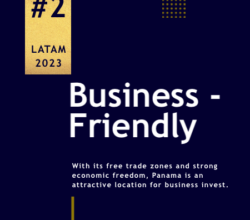Your cart is currently empty!
A Guide for Expats and Real Estate Investors
Panama is a top destination for expats and real estate investors, offering a stable economy, attractive tax incentives, and a thriving property market. Whether you’re buying a home, investing in rental properties, or planning for long-term wealth preservation, choosing the right legal structure is essential to protect your assets, minimize taxes, and ensure compliance with local laws. This guide focuses on the three most common legal structures for expats and real estate investors in Panama: Personal Ownership, Corporation (Sociedad Anónima or SA), and Private Foundation.
Why Panama?
Panama’s unique benefits make it a prime location for expats and investors:
- Tax Advantages: Panama operates on a territorial tax system, meaning only income earned within the country is taxed. Foreign-sourced income is tax-free.
- Stable Economy: The US dollar is the official currency, eliminating currency risk for many investors.
- Real Estate Opportunities: From beachfront properties to urban condos, Panama offers diverse investment opportunities.
- Expat-Friendly Policies: Visa programs like the Pensionado and Friendly Nations visas make it easy for foreigners to relocate and invest.
To fully leverage these benefits, selecting the right legal structure is crucial.
Key Considerations When Choosing a Legal Structure
Before deciding on a legal structure, consider the following factors:
- Asset Protection: How can you shield your assets from potential liabilities?
- Tax Efficiency: What structure will minimize your tax burden in Panama and abroad?
- Ease of Management: How much administrative work are you willing to handle?
- Real Estate Goals: Are you investing for personal use, rental income, or long-term wealth preservation?
- Long-Term Plans: Do you plan to stay in Panama indefinitely or maintain flexibility to move elsewhere?
Legal Structures for Expats and Real Estate Investors in Panama
1. Personal Ownership
- What It Is: Holding property in your name as an individual.
- Best For: Expats purchasing a primary residence or a single investment property.
- Pros:
- Simple and cost-effective.
- No need for complex legal entities.
- Cons:
- No asset protection; personal liability for legal issues.
- Limited tax benefits for rental income.
- Costs:
- Setup: 500 − 1.000
- Running: Property taxes and maintenance fees.
2. Corporation (Sociedad Anónima or SA)
- What It Is: A private corporation, the most common legal structure for businesses and real estate investments in Panama.
- Best For: Investors holding multiple properties or those seeking asset protection.
- Pros:
- Strong asset protection (liabilities are limited to the corporation).
- Tax advantages, especially for rental income.
- Privacy (shareholders’ names are not publicly disclosed).
- Cons:
- Higher setup and maintenance costs.
- Annual franchise taxes and reporting requirements.
- Costs:
- Setup: 1.500 − 3.000.
- Running: 300 − 500 (annual franchise tax + fees).
3. Private Interest Foundation
- What It Is: A hybrid entity combining features of a trust and a corporation, often used for estate planning and asset protection.
- Best For: Expats looking to protect wealth, plan their estate, or hold real estate for future generations.
- Pros:
- High level of asset protection.
- No taxes on foreign-sourced income.
- Flexible management and inheritance planning.
- Cons:
- Expensive to set up and maintain.
- Requires a council and registered agent.
- Costs:
- Setup: 3.000 − 5.000.
- Running: 500 − 1.000 (annual fees).
Tax Implications
Panama’s territorial tax system is a major draw for expats and investors. However, it’s important to understand the tax implications of your chosen legal structure:
- Personal Ownership: Property taxes are relatively low, but rental income is subject to income tax.
- Corporation: Corporate tax rates apply to income generated within Panama, but deductions and expenses can reduce taxable income.
- Private Foundation: No taxes on foreign-sourced income, but local income may be subject to taxes.
Always consult a tax advisor to ensure compliance with both Panamanian and your home country’s tax laws.
Steps to Choosing the Right Legal Structure
- Define Your Goals: Are you investing for personal use, rental income, or estate planning?
- Consult Professionals: Work with a local attorney, tax advisor, and real estate expert to understand your options.
- Evaluate Costs: Consider setup fees, annual maintenance costs, and tax implications.
- Plan for the Future: Choose a structure that aligns with your long-term goals and provides flexibility.
Comparison Table: Personal Ownership vs. Corporation vs. Private Foundation
| Feature | Personal Ownership | Corporation (SA) | Private Foundation |
|---|---|---|---|
| Best For | Primary residence or single property. | Multiple properties or asset protection. | Estate planning and wealth protection. |
| Asset Protection | None. | High. | Very high. |
| Tax Efficiency | Low. | Medium to high. | High (no taxes on foreign income). |
| Setup Costs USD | 500 − 1.000 | 1.500 − 3.000 | 3.000 − 5.000 |
| Annual Running Costs | Property taxes and fees. | 300 − 500 | 500 − 1.000 |
| Ease of Management | Very easy. | Moderate. | Moderate to complex. |
Final Thoughts
Choosing the right legal structure in Panama as an expat and real estate investor is a critical decision that can impact your financial security, tax obligations, and overall success. Here’s a quick summary to help you decide:
- Personal Ownership: Ideal for simplicity and low costs, but offers no asset protection.
- Corporation (SA): Best for investors seeking asset protection and tax advantages for multiple properties.
- Private Foundation: Perfect for long-term wealth preservation and estate planning.
By understanding your options and seeking professional guidance, you can make an informed choice that aligns with your goals and maximizes the benefits of investing in Panama.
Disclaimer: This article is for informational purposes only and does not constitute legal or financial advice. Consult a qualified professional before making any decisions.

Für unsere deutschen Kunden.

